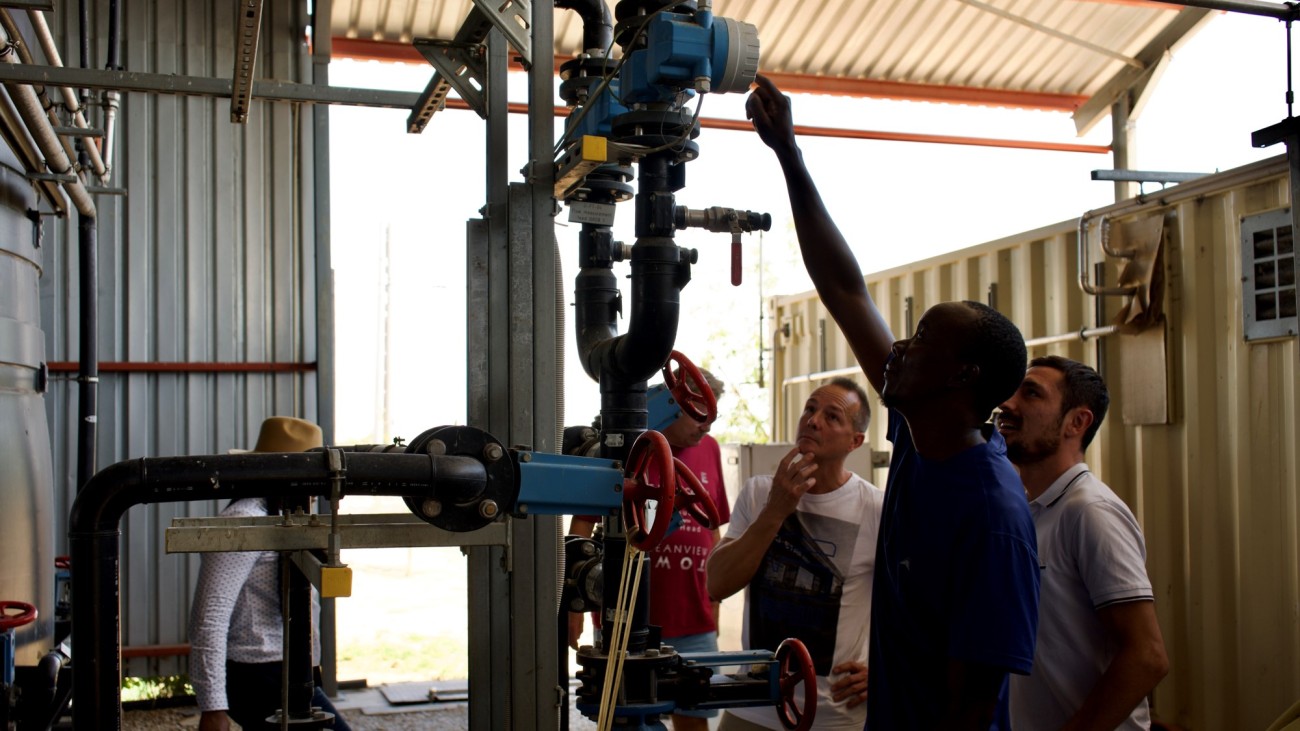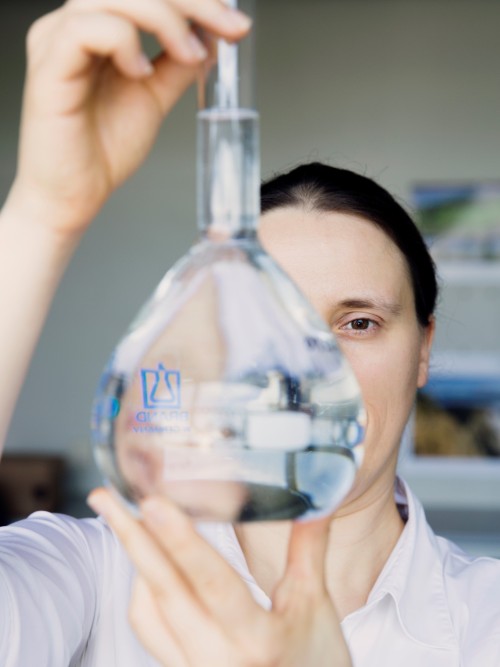Interdisciplinary approaches are becoming increasingly important in tackling complex topics and issues. Therefore, we at the Department of Water and Environmental Biotechnology have aligned our research in a very interdisciplinary way at the interfaces between environmental engineering and applied microbiology. In doing so, we want to explore processes and interrelationships in natural and technical systems with the help of microbiological and molecular biological investigations and improve biological processes in their technical applications with regard to their stability and performance. To this end, we develop or adapt microbiological and molecular biological methods to our specific problems. In order to optimise new processes, experimental facilities are operated on a laboratory and semi-industrial scale, e.g. in current research projects on membrane-based biofilm processes, processes with activated carbon or oxidation processes. In addition to experimental research work, mathematical simulation of individual reactors up to complete wastewater treatment plants also makes an important contribution to better understanding, optimising and controlling technical systems. Special attention is paid to the investigation of microbiological communities and their dynamics. In wastewater treatment systems, for example, the processes of nutrient elimination can be optimised in this way.
Our department focuses on three main topics:
- Nitrogen elimination and biofilm processes
- Advanced wastewater treatment and water reuse
- Applied environmental microbiology
In addition to classical processes such as nitrification and denitrification, the research area on nitrogen elimination and biofilm processes is primarily concerned with the development of new technologies for nitrogen removal. The focus is on innovative biological processes such as nitrification and anaerobic ammonium oxidation, or anammox for short. We also deal with the microbial processes surrounding nitrous oxide (N2O) production and reduction in technical systems. Membrane-based biofilm reactors (MABR) are also the subject of our research. To develop and optimise new processes, we operate experimental plants on a laboratory and semi-industrial scale. In addition to experimental approaches, we also use mathematical models for process optimisation.
The research area of advanced wastewater treatment and water reuse aims to develop technical measures and adaptation strategies to reduce substance inputs. In order to meet the requirements of health and water protection, but also resource protection, efficient water management is indispensable. The focus here is primarily on investigations into the removal of anthropogenic trace substances (e.g. drug residues, household and industrial chemicals, pesticides), microplastics, antibiotic-resistant germs and phosphorus and nitrogen compounds from municipal wastewater treatment plants. Here, too, we operate plants on a laboratory, pilot and industrial scale. Furthermore, environmental microbiology also comes into play here in order to eliminate pathogens, viruses and antibiotic-resistant germs from the wastewater and thus evaluate the cleaning efficiency.
The improvement of water quality and the expansion of sustainable water reuse are also anchored in the United Nations Sustainable Development Goals. To this end, the research area of water reuse deals with sustainable water resource management and strategies for water reuse, taking into account demographic, economic and climatic changes.
Applied environmental microbiology provides comprehensive methodological approaches and concepts to achieve a fundamental understanding of biological relationships. For this purpose, we operate a state-of-the-art microbiology laboratory.





